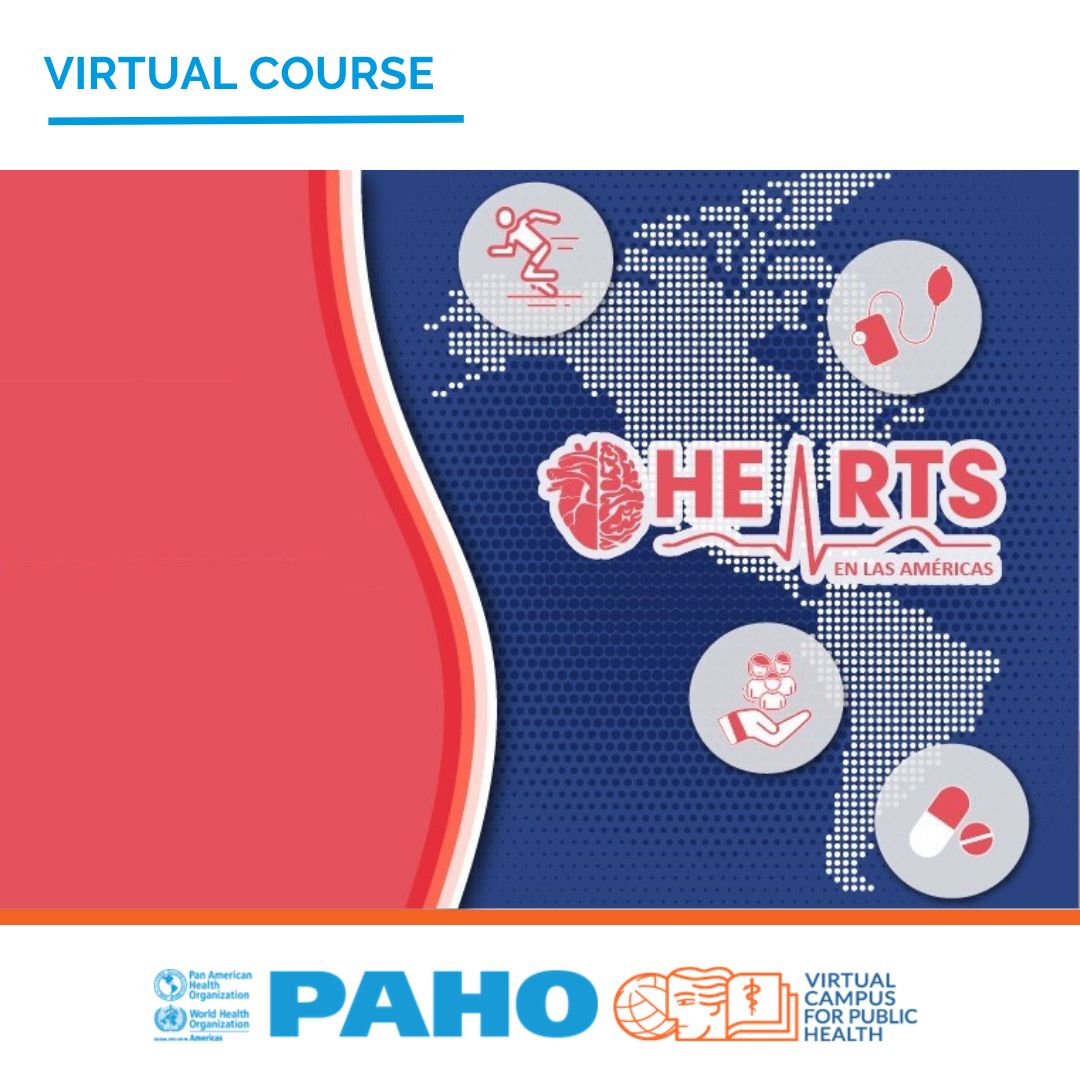
Introduction
Hypertension is a global health issue among adults with high morbidity and mortality rates. Improvement in blood pressure control has occurred. However, part of the improvement seen in the last two decades has slowed significantly and, in some cases, even reversed. This has been shown clearly in the US, where NHANES data, and in the WHO Region of the Americas, where 11 countries showed flattening or/and even an increase in mortality.
This virtual course on Hypertension and Cardiovascular Risk Management in Primary Healthcare is part of the learning resources of the HEARTS in the Americas Initiative and is built based on the best-accumulated experience. It has been produced by a scientific committee conformed by diverse experts with solid clinical and educational experience.
The course is a training and learning tool, and its primary purpose is to provide the theoretical components and interactive clinical exercises that may help clinicians to improve their clinical performance at the primary healthcare level, enhancing the diagnosis, treatment, and follow-up of patients with hypertension. The course addresses the need for a comprehensive approach to hypertension, which requires evaluating cardiovascular risk in people with hypertension to define treatment, drug combinations, target goals, and the frequency and level of specialization of clinical follow-up.
Intended audience
This course is intended for physicians, nurses, physicians and nursing assistants, pharmacists working at the primary health care level, interns, residents, and other specialists in training. In addition, teachers of health science programs, which include medicine and nursing, are recommended to embed the course and make it available for their students or to incorporate it into their curriculum.
General skills
At the end of this course, participants should be able to identify, treat and follow-up patients with hypertension using the HEARTS clinical pathway and ensure that their cardiovascular risk is assessed and addressed properly and more comfortably.
Course duration
25 hours. Participants can review the recommended bibliography. The bibliography includes complementary readings based on evidence, which are a valuable source of knowledge.
Course format
The course is placed on the platform of the Virtual Campus for Public Health of PAHO/WHO available 24 hours a day, 7 days a week, in a self-administered modality according to the participant's own pace, individually or as part of professional programs and /or educational meetings in the workplace. The course issues a certificate that can be downloaded automatically once the students have met the course completion requirements.
Course structure
Module 0: Welcome remarks
Module 1: Diagnosis of hypertension in primary health care
Module 2: Healthy Lifestyle Counselling
Module 3: Use of the HEARTS hypertension treatment protocols
Module 4: Diabetes, diagnosis and treatment
Module 5: Chronic kidney disease and hypertension
Module 6: Cardiovascular disease prevention
Module 7: Team-based care
Module 8: Cardiovascular diseases, hypertension and COVID-19

